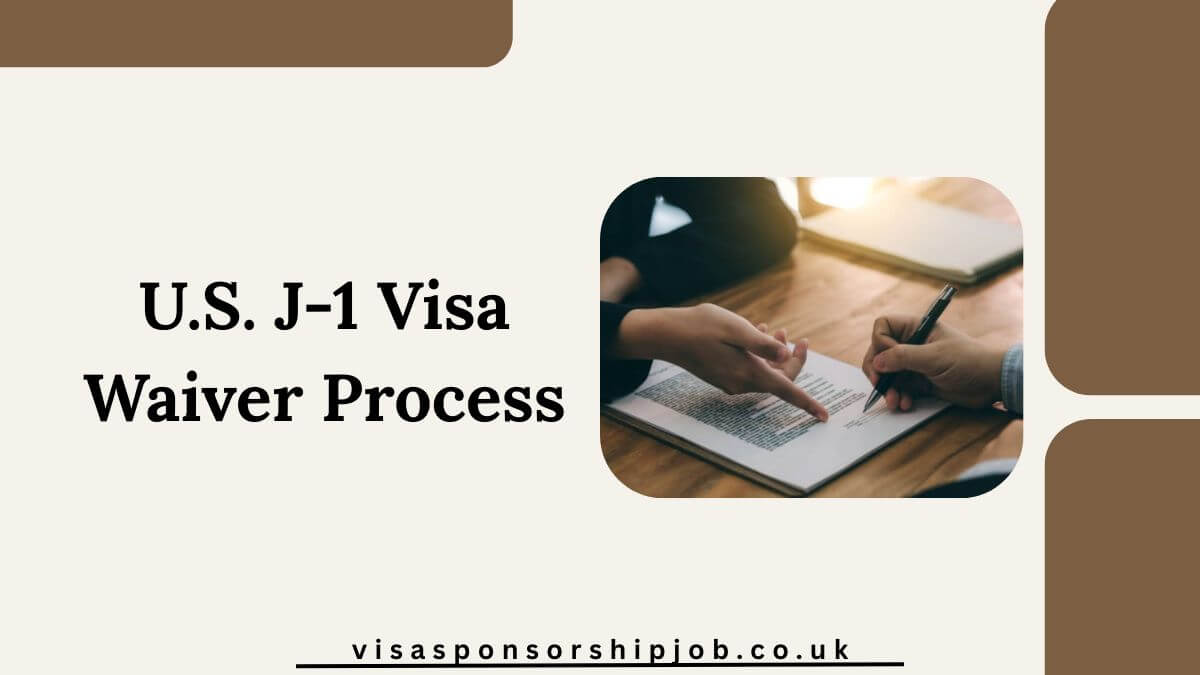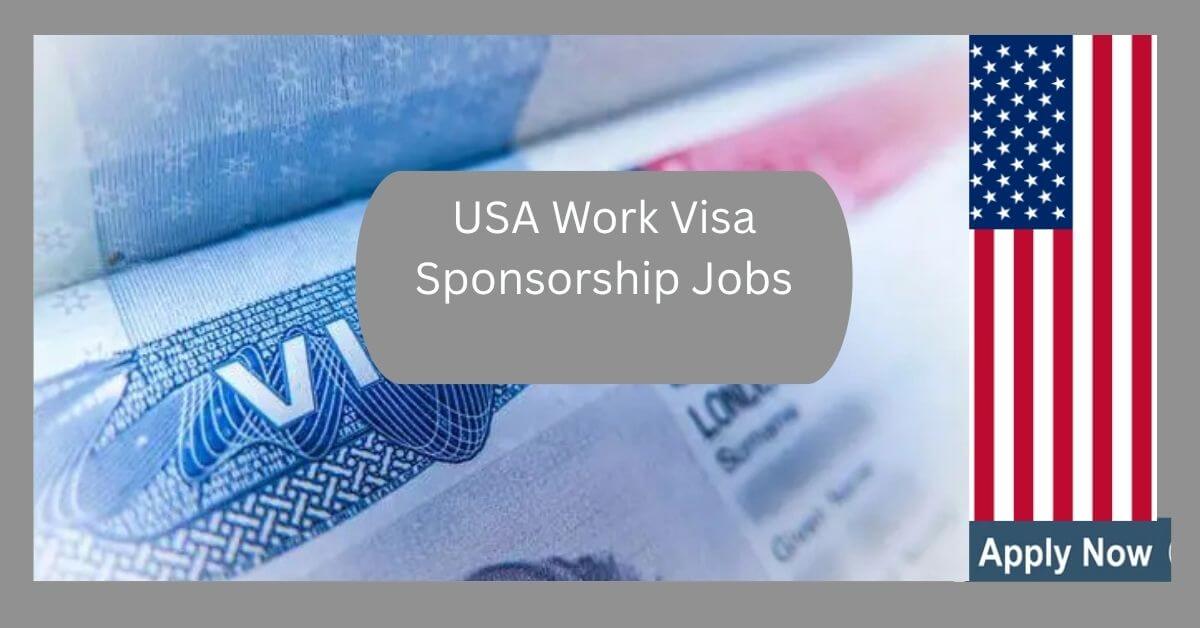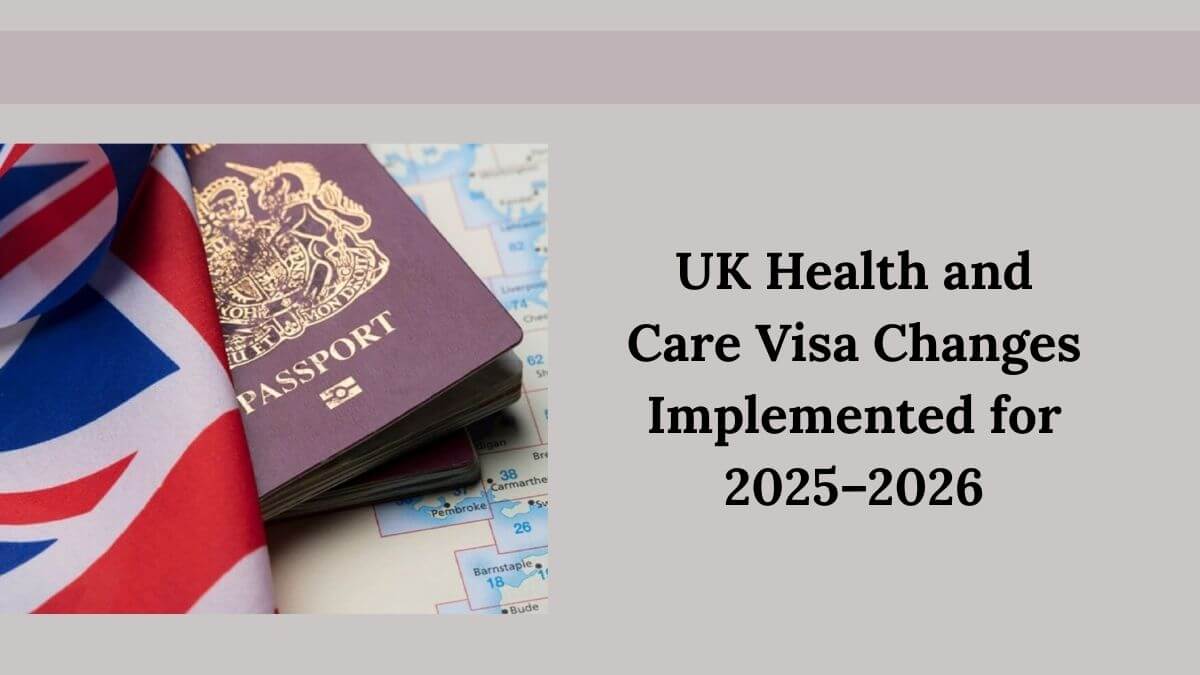U.S. J-1 Visa Waiver Process 2025 – Apply Now

The U.S. Department of State has issued a 60-day public notice, which is a significant update for international scholars, physicians, researchers, and exchange program participants. The notice invites feedback on the J-1 Visa Waiver Recommendation Application process (Form DS-3035). This development indicates the possibility of modifications to the J-1 waiver process, which impacts thousands of applicants who are seeking an exemption from the mandatory two-year foreign residency standard.
What’s the Update?
Officially published in the Federal Register, under Public Notice 12730, the notice was entitled “60-Day Notice of Proposed Information Collection: J-1 Visa Waiver Recommendation Application…“
The State Department is currently soliciting public feedback on its proposed revisions to Form DS-3035, which is utilized by J-1 visa holders who are seeking a waiver of Section 212(e). This regulation mandates that certain J-1 visa holders return to their home countries for a period of two years before reapplying for a U.S. visa or permanent residency.
Fast Facts: J-1 Waiver Application Process Review
| Item | Details |
|---|---|
| Affected Form | DS-3035 – J-1 Visa Waiver Recommendation Application |
| Agency | U.S. Department of State, Bureau of Consular Affairs |
| Change Type | Revision of Currently Approved Collection |
| OMB Control Number | 1405-0135 |
| Estimated Respondents | 14,150 annually |
| Estimated Time Per Response | 1 hour |
| Total Burden | 14,150 hours/year |
| Submission Method | Online via J Visa Waiver Portal |
Why Public Comments Matter?
The Department of State is currently soliciting public input to:
- Evaluate the necessity and value of the data being gathered.
- Enhance the user experience and clarity for potential applicants.
- Investigate more efficient or digital methods to alleviate the applicant burden.
- Guarantee the precision of the time and cost estimates required to complete the application.
This is your opportunity to influence the future of the waiver process if you are a university or medical institution sponsor, an immigration counsel, or a current or former J-1 visa holder.
Check Also: Visa Sponsorship Marketing Manager Jobs in USA – Apply Now
Benefits of U.S. J-1 Visa Waiver:
- Exemption from the Two-Year Home Residency Requirement: Exempts individuals from the mandatory return to their native country for a period of two years following the completion of a J-1 program.
- Opportunity to Apply for Permanent Residency in the United States (Green Card): Allows individuals to petition for a Green Card without being required to satisfy the two-year residential residency requirement.
- Ability to Modify Visa Status: The waiver enables individuals to transition to alternative U.S. visa categories (e.g., H-1B or O-1) without being subject to the home-country return requirement.
- Capacity to Work in the United States Without Restrictions: Individuals are not restricted by the J-1 visa restrictions when they pursue employment in the United States.
- Family members are permitted to remain in the United States: The two-year residential residency requirement does not apply to the spouses and children of the J-1 visa holder, who are permitted to remain in the United States.
- Doctors have access to the Conrad 30 Program: The Conrad 30 Program is available to J-1 visa holders in the medical profession, who are permitted to work in underserved areas in exchange for a waiver.
- Protection from Deportation: The waiver safeguards individuals from deportation as a result of their failure to comply with the home-country return requirement.
- Enhanced Career Security: The waiver eliminates visa restrictions, thereby providing the opportunity for increased long-term career stability and development in the United States.
- Easier Transition to Permanent Residency: The waiver simplifies the process of obtaining permanent residency for those who intend to remain in the United States for an extended period.
- Staying in the United States is permissible: The waiver enables individuals to preserve their legal status in the United States without the need to depart or navigate visa complications.
- In favor of the Family Unit: The waiver also waives the home domicile requirement for dependents, which aids in the preservation of family unity in the United States.
- Ongoing Contribution to the Economy and Society of the United States: The waiver enables foreign professionals to continue contributing their skills and expertise to the U.S. economy, particularly in critical sectors such as healthcare, education, and research.
How to Submit Your Comment?
The following methods are available for submitting your comment before July 14, 2025:
- Search for Docket Number: DOS-2025-0007 on www.regulations.gov and click “Comment Now.”
- Email: send feedback to PRA_BurdenComments@state.gov.
Incorporate the OMB control number, information collection title, and form number (DS-3035) into your message.
By Mail:
- Senior Regulatory Coordinator, Visa Services
- Department of State
- 600 19th St. NW
- Washington, DC 20006.
Note: Comments that are submitted are considered public records; therefore, it is advised to refrain from including any sensitive personal information.
What Is the J-1 Visa Waiver All About?
The two-year home-country physical presence requirement is applicable to specific J-1 visa holders, including foreign medical graduates and exchange researchers. This implies that they must return to their native country for a period of two years before they are eligible to apply for specific U.S. visas or green cards, unless they are granted a J-1 waiver. Form DS-3035 is the indispensable application that initiates the waiver procedure.
What Could Change?
Although the precise revisions to Form DS-3035 are not specified in this notice, the public’s feedback will have an impact:
- The formulation of queries
- What documentation is necessary?
- The integration of digital or automated technologies
- Timelines and the experience of the applicant.
Frequently Asked Questions:
How long does it take for a J-1 waiver to be approved?
1-2 Months: Collect the required documentation, complete Form DS-3035 online, and submit your application to the Department of State’s Waiver Review Division. 4-6 Months: DOS analyzes your application and provides an opinion. 2-4 Weeks: USCIS receives the recommendation and processes your case.
What is the success rate of the J-1 waiver?
The firm boasts a total success rate of 94%, with 606 J-1 waiver victories from 83 countries (in green) as of October 2017. Nevertheless, the attorney’s success in achieving a favorable outcome in any future case cannot be guaranteed by the attorney’s past record, as each case is unique.
What is the 2 year rule for J-1 visa?
If you are subject to Section 212(e) and decide to satisfy it, you must be physically present in your country of nationality or last legal permanent residence for a total of at least two years after departing the US at an agreement of your J-1 program.



